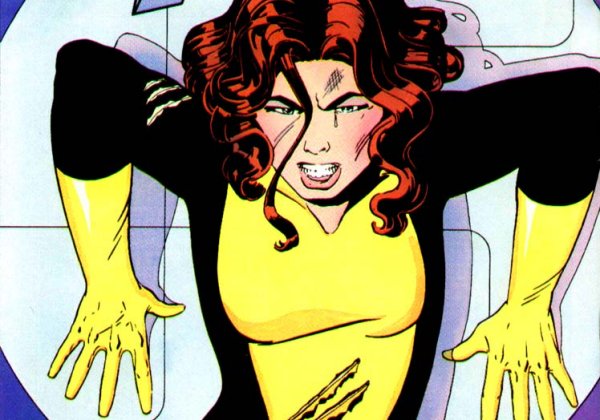 It’s still hard to say where PSYCHO-PASS is going, but clues in this episode suggest the show’s target is close to home.
It’s still hard to say where PSYCHO-PASS is going, but clues in this episode suggest the show’s target is close to home.
What They Say
Ginoza and Akane, along with the Enforcers, are brought in to investigate a death caused by a Drone at a Drone manufacturing plant. When the Psycho-Pass of the entire staff checks out, they question whether it was an accident or possibly murder.
Content: (please note that content portions of a review may contain spoilers):
3 episodes in, and I’m still at a loss to what the point of Psycho-Pass is. The first episode was grim and ‘edgy’ to the point of parody, the second episode combined slice of life with some satire, and now episode 3 seems to be a by-the-book police procedural. This time, we open on Shinya Kogami, who’s training in his room, and staring ominously at photos of a man in white that he has pinned to his wall. This is obviously his rival that we met in the first episode’s prologue, but the connection between this man and Kogami is still unknown.
From there, we’re taken to a drone plant where there have been 3 suspicious deaths in the past year. Although everyone working at the plant has a psycho-pass that checks out, it’s a suspiciously high number, so the Inspector and Enforcers are sent in to investigate. The usual roadblocks are in place: It’s a government plant, and the foreman doesn’t want any investigation to get in the way of productivity. The plant is also cut off from any outside internet connection, increasing the amount of time before Sybil can process any PSYCHO-PASS data, and making the Enforcers useless.
I had guessed that Urobuchi’s focus in the series would be on the specific rules of the Sybil system, and this episode bears that out to some degree. We learn that the Sybil system is very busy processing data all day long, and the Enforcer weapons are basically given a chance to “cut in line” and make processing a target’s PSYCHO-PASS the highest system priority. We also see, from the behavior at workers at the facility, that unequal hierarchies might actually be more mentally “healthy” for most everyone involved. If there’s a person around to be bullied, for instance, everyone else’s stress is reduced, and if that person becomes too unstable, they can either be transferred, or if need be, eliminated entirely. So there’s a definite sense that the Sybil system, like all justice systems, is more interested in the appearance of order than actual order, because if doubt for the system arises, the entire thing will break down. The way the foreman and Ginoza seem to prefer overlooking murder to keep from rocking the boat, as well as Sybil’s desire to have the woman killed in the first episode, suggests that order is the primary objective, and “justice” isn’t a real concern at all.
The way Kogami decides to “solve” the murder is also a point of interest. Instead of going for clues and using deduction, his idea is essentially to stress out the suspect on the assumption that his PSYCHO-PASS will again rise to criminal levels. It works in this case, but is this tantamount to coerced confession? Is it possible for detectives to harass or torture a suspect enough that his PSYCHO-PASS becomes unstable? If so, it’s possible to find a criminal for any need. All that’s needed is to push them past the point of “no return” mentally.
In the end, Akane is still concerned about how events unfolded, not being entirely satisfied by the somewhat sadistic approach of Kogami. Ginoza warned her that in trusting her Enforcers, Akane had chosen the path of the fool. Would it have been preferable to leave the plant’s unjust, but ultimately stable, pecking order in place?
In Summary
While a lot of comparisons have been drawn to Minority Report, many of this episode’s focal points make me think that comparison is ultimately mistaken. With the focus on bullying, under the table collusion between business, government, and police, and the goal of getting “coerced” PSYCHO-PASSes out of people rather than using forensic data, PSYCHO-PASS seems to be a reaction to Japan’s justice system. While we don’t often hear about it, Japan’s system of justice is frankly terrible, with a focus on badgering the accused into confessing in order to maintain order. If this is the target of Urobuchi’s critique, as I suspect it might be, it will be interesting to see where he goes with it.
Grade: B
Streamed By: Funimation.com
Review Equipment: Sony VAIO 17″ HD screen



